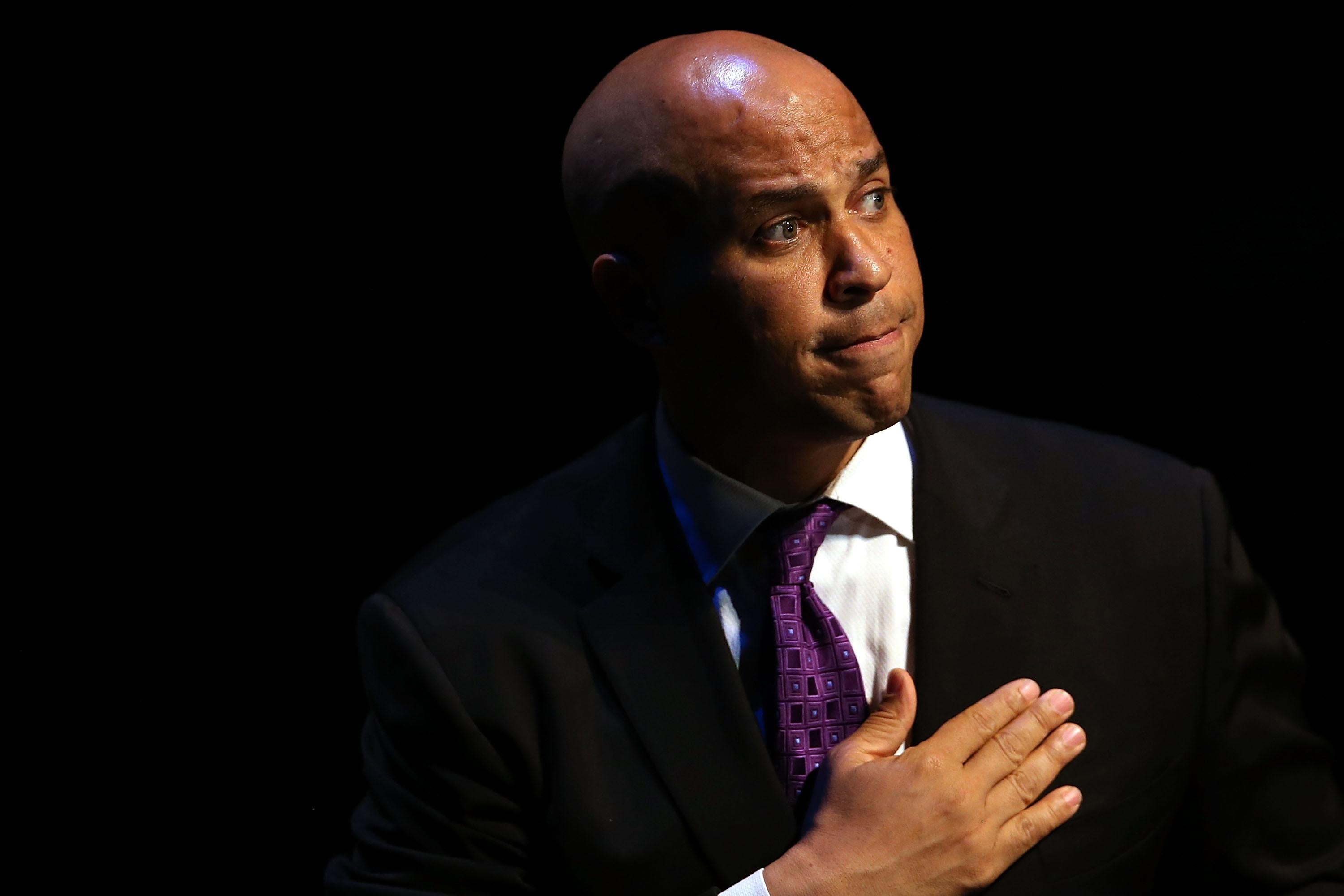As Congress was finalizing last night’s months-long debt limit/CR deal, Newark Mayor Cory Booker was strolling to an 11-point victory in a special election for New Jersey’s U.S. Senate seat. I’ve got a piece here that tries to sum up the grand hopes that have been put on Booker since he was—oh, God—my age and running for mayor. And I recap the race that was, which closed to a low-double-digit lead for Booker three weeks ago and never got any tighter, despite lots of “Booker stumbling over the finish line” framing.
No, after a career of being feted and celebrated by the media, Booker arrives in D.C. with a victory that conservatives think they can #unskew. The Kabbalah of this theory is John Fund’s new article “Dem ‘Referendum’ on Tea Party Fizzles: Booker Margin in N.J. Barely Half of Obama’s in 2012.” This is literally the best possible way to spin it.
[Steve] Lonegan lost, but his principled campaign showed the strength of conservative activists in a state that hasn’t voted Republican for president in a quarter-century. Since the campaign culminated with the government shutdown in Washington, it can’t be said that voters rose up to protest Republicans as Obama and Booker urged. In defeat, Lonegan won a higher percentage of the vote for U.S. Senate than any Republican in the Garden State has gotten in a dozen years.
Well, OK. Let’s have some fun with numbers.
- Booker’s 55 percent was the most any candidate’s won in an open seat race for U.S. Senate in New Jersey since the 1930 election of Dwight Morrow. It’s vanishingly rare for a New Jersey candidate to crack 60 percent statewide; it hadn’t been done since 1984, the first re-election of Bill Bradley.
- Special Senate elections not held in November are rare. Booker’s margin was the highest for any candidate in such a race since 1993, when then-Texas Treasurer Kay Bailey Hutchison won the seat of former Sen. Lloyd Bentsen. It was a pretty open secret that the Wednesday, Oct. 16, election would challenge normal Democratic turnout models, and it did. Booker’s 713,594 votes (so far) were less than half—more than 1 million short—of what Sen. Bob Menendez won during at year’s general election.
- Steve Lonegan’s campaign, and the third-party groups fundraising off the race, swore that the race was closer. This was the lede of Lonegan’s Wednesday fundraising email:
My name is Steve Lonegan, I’m the Republican nominee for US Senate here in New Jersey. And we’re going to shock the world on Wednesday. That’s why I need your help. Our latest internal polls have us within just 3 points of winning this New Jersey Senate seat!
Nope. That “internal poll” was always bunk.
If conservatives want to argue that Booker’s slightly-lower-than-the-polls-predicted win in a low-turnout special election proved that the “anti-Tea Party” message failed, I guess that’s fair. If Terry McAuliffe ends up winning Virginia’s gubernatorial race in 19 days, I suppose conservatives can blame that on the Libertarian campaign of Robert Sarvis. But at some point, losing an election means losing an argument.
Oh, one more irony: Booker’s win may have moved the Senate slightly to the right, as the late Frank Lautenberg was a reliable liberal and his replacement isn’t quite. There’s your conservative silver lining.
